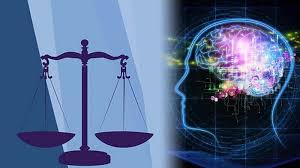The world of the data-driven lawyer is no longer just a futuristic vision. Leading attorneys are routinely leveraging a variety of advanced technologies to gain data insights that were not previously knowable.
Artificial intelligence (AI) technology has already been used to do things like help run factories, fly planes, fine-tune Uber pricing algorithms and optimize professional workflows. Now, next-generation technologies such as machine learning, advanced natural language processing (NLP), data analytics and data visualization are poised to extend these capabilities. In the legal profession, AI is helping attorneys manage data-intensive tasks more productively and efficiently, allowing them to focus on high-value strategic activities and initiatives that will benefit their clients and grow their business.
In the days before computer technology, lawyers prepared for litigation by reading and re-reading case law in search of precedents, sifting through piles of hard copy evidence and consulting with colleagues about strategy. Some attorneys still rely wholly or partly on pre-computer methods, but next-generation technology is beginning to yield next-generation lawyers.
That is not to say that next-generation lawyers don’t read or perform research. Far from it. Technology simply helps them do it much more effectively and efficiently. Today, advanced technology is being seamlessly integrated into every aspect of a busy attorney’s practice, including research, case assessment and preparation, case management, budgeting and transactional tasks. With AI, including powerful machine learning and data analysis tools, work that used to take a lawyer days, weeks or even months can now be successfully achieved in minutes. AI technology is being deployed to transform massive amounts of raw litigation data into easily searchable, usable information that reveals patterns and provides insights that would be difficult, if not impossible to expose otherwise.
For example, legal professionals are now using AI-based data analytics technologies to detect trends and patterns in litigation data so that their decision-making and legal strategies are based on facts rather than instinct or conjecture. AI is also being deployed to quickly uncover potential issues within contracts, legal briefs or motions and help lawyers find appropriate solutions. Advanced search technologies incorporating AI continue to evolve, allowing users to search using natural language instead of keywords and Boolean logic, analyze context to identify and rank the most relevant results, and pinpoint specific relevant passages within very large documents.




